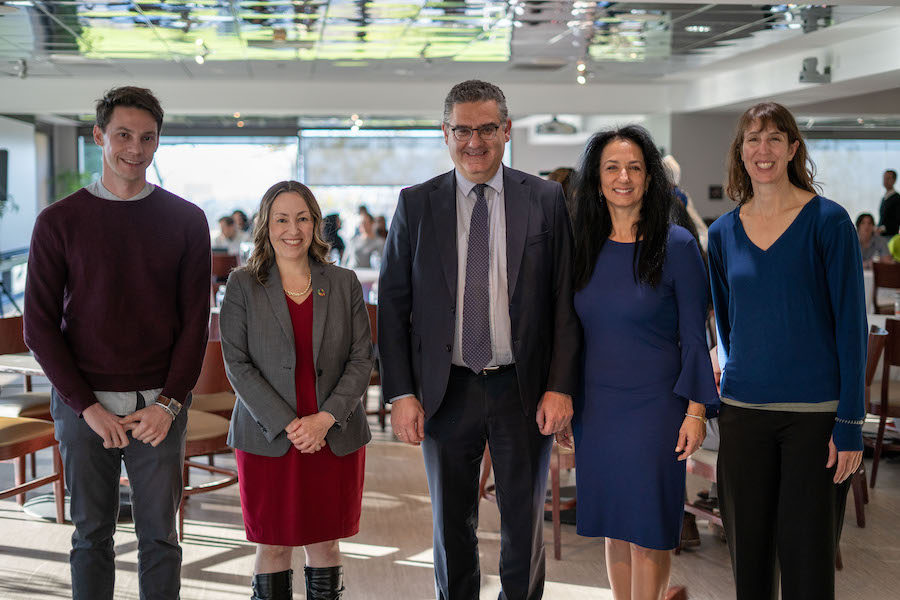
Global perspective is an important element of an LMU Bellarmine College of Liberal Arts education, and students often have opportunities to engage with guest experts and dignitaries from around the world. In January, LMU hosted the Greek Consul General in Los Angeles, the Honorable Ioannis Stamatekos, for a lecture titled “Greece’s Role in the Eastern Mediterranean.” The event kicked off the Classics and Archaeology Department’s Spring 2023 Learning Community Series and was co-sponsored by the Office of the Vice-Provost for Global-Local Affairs, the Global Policy Institute, and the International Relations Program within the Political Science and International Relations Department.
LMU Vice-Provost for Global-Local Affairs Roberta Espinoza, opened the event, and Katerina Zacharia, Professor and Chair of Classics and Archaeology, also gave remarks connecting the Consul General’s visit to her course “Representations of Greece: Ancient and Modern” (CLAR 4270). She underscored how the Greek Consul’s visit serves as a good example of global learning as it can help enhance coursework on global issues, and bring awareness to our students. Zacharia created the course after witnessing the repeated misrepresentation of affairs in Greece during its devastating decade-long financial crisis (2008-18). The course draws on Zacharia’s own work in Greek identity formation and cultural politics, as well as cultural and ethnicity theories, to explore how stereotypes in media are linked to contextual negotiations of identity.

The Greek Consul General’s lecture touched on many of the themes that Zacharia and her students study in the course, such as Greece’s remarkable economic turnaround, the country’s decisive steps to combat right-wing populism as shown with the rise and fall of the neo-nazi Golden Dawn party, and the importance of energy security in light of Russia’s war in Ukraine and oil sanctions. Particular focus was paid to security, and the Honorable Stamatekos underscored the importance of maintaining stability in the Eastern Mediterranean, and Greece’s unique responsibility, as the oldest member-state of the UN in that region, to play a leading role in doing so. He used Greece’s ability to mitigate illegal immigration by protecting its borders while also treating migrants in a humane way as an example of its leadership in the region. He also discussed how this dynamic plays out in Greece’s relationship with Turkey, which the Greek Consul General cautioned for its anti-democratic turn and disruptive attempts at becoming a more dominant power. Although the topics he addressed were wide-ranging, they all ultimately came back to a central theme of Greece’s successes, its geostrategic importance lying at the crossroads of three continents, and its democratic government that offers security in the region.
At the conclusion of Greek Consul General Stamatekos’s lecture, followed a lively Q &A with students in attendance, most of whom were drawn from Katerina Zacharia’s aforementioned “Representations of Greece: Ancient and Modern” class, International Relations Director Feryal Cherif’s course “Politics of the Middle East,” and Global Policy Institute Director Gabriele Magni’s “European Politics” class.
The Greek Consul General’s event may be viewed in its entirety here.



